'Assembly of Called-Out Believers' tagged sermons (Page 3)
(This Torah Teaching is for the Shabbat of June 29th, 2024)(Donate and support this Ministry by clicking here) Sh’lah L’kha (שְׁלַח-לְךָ) — Hebrew for “send”, “send to you”, or “send for yourself”) is the 37th weekly Torah portion (פָּרָשָׁה, parashah) in the annual cycle of Torah reading and the fourth in the Book of Numbers…
Parashah B’ha’alotkha covers Numbers 8:1–12:16 and tells of the Menorah in the Tabernacle, the consecration of the Levites, the Second Passover, how a cloud and fire led the Israelites, the silver trumpets, how the Israelites set out on their journeys, complaining by the Israelites, and how Miriam and Aaron questioned Moses.
#31 Parsha Emor with Torah and Haftarah video studies
- Rabbi Isaac
- Holiness, Holy Days, The menorah, Passover (Pesach), Feast of Unleavened Bread (Hag Matzot), Shavuot, Feast of Trumpets (Yom Teruah), Day of Atonement (Yom Kippur), Feast of Tabernacles (Sukkot), 8th Day Assembly (Shimini Atzuret & Simchat Torah), The 8th Day Assembly (Shimini Atzeret), 31 - Emor (Speak)
- Leviticus
- 3 Comments
Torah parsha Emor (אֱמֹר) is from Leviticus 21:1–24:23 and Hebrew for “speak,” and is the 31st weekly Torah portion (פָּרָשָׁה, parsha) in the annual cycle of Torah readings and instructs us in the purity rules for priests (כֹּהֲנִים, Kohanim), as well as recounts the holy days, provides for lights and bread in the sanctuary, and tells the story of a blasphemer and his punishment.
Learn about Passover, the two Firstfruit harvests, and how to count the Omer up to Shavu’ot
This week the Torah Parashah and Haftarah both focus on the Priesthood… Teaching For Shabbat of March 30th, 2024 (Donate and support this Ministry by clicking here) Torah: Leviticus 6:1–8:36Haftarah: Jeremiah 7:21-28; 9:22-23 Tzav (צַו) — Hebrew for “command,” the sixth word in the parsha) is the 25th weekly Torah portion in the annual cycle of Torah…
Teaching For Shabbat of March 23th, 2024(Donate and support this Ministry by clicking here) Torah: Leviticus 1:1–5:26Haftarah: Isaiah 43:21-44:23 Vayikra (וַיִּקְרָא)— Hebrew for “and He called,” the first word in the parsha) is the 24th weekly Torah portion in the annual cycle of Torah readings and the original name for the Book of Leviticus. The parsha lays out the laws…
This week we have a double Torah Parsha… Vayakhel and Pekudei. Vayakhel (וַיַּקְהֵל ) meaning “and he assembled,” and Pekudei (פְקוּדֵי ) meaning “amouts of,”…
In this study of Tetzaveh we see further symbolic details within the Mikdash (Tabernacle) that reveals the plan for man’s sanctification as well as the hidden message in the beaten olives to produce the olive oil for the menorah and the armor of God seen in the Garments of the High-Priest used to intercede for Israel and draw near to His glory!
In this study from Torah parashah Terumah we see the beautiful symbolism within the Mikdash (Tabernacle) that reveals Yah’s Plan of Salvation and shows us how God desires to “dwell” within us and what Selfless love looks like when Divinity “dwells” in Humanity!
Torah parashah Mishpatim covers Exodus 21:1 – 24:18 and goes over 53 Mishpatim or “judgements” in how to be accountable to our fellow man as well as the laws of compensation and restitution when one does something wrong or negligent. In this study we focus on how God intends for us to grow spiritually further than the “basic” instruction in Torah on how to “not do wrong things” to showing selfless love to God and our fellow man on a higher spiritual application in thought, word and deed!











